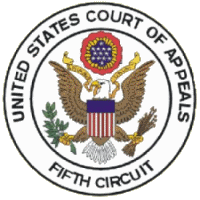Superior Trading LLC v. Commissioner, which consolidated several pending petitions, represented the Tax Court’s first consideration of the Distressed Asset Debt/Distressed Asset Trust (“DAD”/”DAT”) transaction cases. The Superior Trading transaction, a DAD transaction, operated through the contribution of significantly distressed, but not yet worthless, foreign assets to a partnership owned by the taxpayer seeking the tax loss. Under prior law, no election under section 754 was made at the time of the contribution which allowed the high basis, or purported face value, of the distressed assets to carry over to the partnership following the contribution. The contributed partnership interest was then redeemed, triggering recognition of the contributed built in loss which then passed through to the taxpayer.
The Court characterized the transaction as tax motivated on the first page of the opinion, comparing it to the widely litigated Son-of-Boss transactions. On the substantive issues, the Court found that the taxpayer failed to show that the distressed foreign assets had a tax basis prior to their contribution to the partnership. The Court then applied the step transaction doctrine to collapse the contribution of the debt to the partnership, and the redemption of that interest, into a single transaction. It characterized that transaction as a sale of the assets and further held that the taxpayers failed to prove the amount paid for the asset, thus again denying the recognition of any tax basis in the assets. The Court also rejected the taxpayer’s good faith and reasonable cause defenses and upheld the imposition of accuracy-related penalties.
Read the opinion here:
Superior Trading LLC v. Commissioner, 137 T.C. No. 6 (2011)
 The Fifth Circuit affirmed the decision of the District Court (Northern District of Texas) denying the tax losses of Texas banker D. Andrew Beal. The Court of Appeals affirmed the lower court’s finding that the partnership through which the losses were generated was a sham and that the losses should be disallowed. However, the Circuit Court also affirmed the trial court’s determination that penalties should not be allowed.
The Fifth Circuit affirmed the decision of the District Court (Northern District of Texas) denying the tax losses of Texas banker D. Andrew Beal. The Court of Appeals affirmed the lower court’s finding that the partnership through which the losses were generated was a sham and that the losses should be disallowed. However, the Circuit Court also affirmed the trial court’s determination that penalties should not be allowed.
